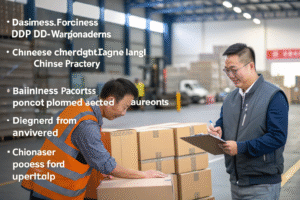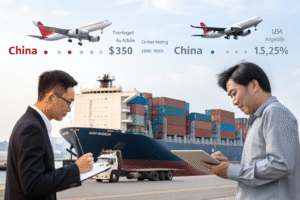In my years of experience as a freight forwarder, one lesson stands above all: communication is the heartbeat of successful shipping. Many importers underestimate how much delays, confusion, and hidden costs come from poor communication with carriers, suppliers, or forwarders.
Timely freight communication ensures that every part of the supply chain—factory, port, customs, and delivery—is aligned. Without it, shipments face delays, higher costs, and frustrated customers. With it, businesses can respond to disruptions instantly and keep operations smooth.
If importers want to build reliable logistics, they must treat communication as seriously as choosing routes or carriers. Let me explain why.
How Do Delays Multiply Without Proper Communication?
A small delay in freight may seem minor at first, but without quick communication, it snowballs into bigger problems.
Missed updates often mean missed connections. If a vessel is late, but the importer doesn’t know in time, trucks, warehouses, or even retail launches may be disrupted.

Why Do Small Delays Turn Into Major Losses?
When information arrives late, businesses cannot adjust. For example, if a container will arrive three days late in Los Angeles, importers must reschedule trucks and warehouses. According to Journal of Commerce, poor visibility leads to higher detention and demurrage charges. With timely communication, these costs can be avoided.
Can Forwarders Prevent Bottlenecks Through Better Updates?
Yes. Freight forwarders act as the single point of contact across multiple players. According to Freightos, forwarders who share proactive updates reduce waiting times at ports and keep shipments flowing. This makes them essential partners for importers managing large volumes.
Why Is Real-Time Tracking Critical in Modern Logistics?
In today’s global trade, real-time tracking is no longer a luxury—it’s a necessity.
Importers need live updates to plan production, delivery, and customer communication. A delayed container in Shanghai affects stock levels in New York. Without real-time data, businesses lose control of their supply chain.

How Does Real-Time Tracking Support Importers?
Tracking systems let businesses monitor vessels, flights, and trucks in real time. According to MarineTraffic, predictive analytics can even forecast delays before they happen. This visibility allows importers to make fast decisions and reduce disruptions.
Do Customers Benefit From Improved Visibility?
Yes. End customers expect transparency. According to DHL, companies that provide accurate tracking updates see higher customer satisfaction and loyalty. Timely communication doesn’t just benefit logistics teams—it builds trust with buyers.
How Do Freight Forwarders Enhance Communication Between Stakeholders?
International shipping involves many players: factories, shipping lines, port officials, customs, truckers, and warehouses. Without a central communicator, chaos is inevitable.
Freight forwarders coordinate all these stakeholders, ensuring everyone gets the same information at the right time.

Why Do Importers Need a Single Point of Contact?
A single point of contact reduces errors. Instead of chasing multiple updates, importers rely on their forwarder. According to Maersk, centralized communication avoids misaligned schedules and improves efficiency.
Can Forwarders Anticipate Problems Before They Happen?
Yes. Experienced forwarders know common risks like customs backlogs or port congestion. According to Port Technology, proactive updates from forwarders help importers prepare alternatives before disruptions escalate.
What Role Does Communication Play in Cost Control?
Late communication not only delays goods—it increases costs.
Timely communication helps importers avoid detention, demurrage, storage fees, and rushed transport costs.

How Can Early Warnings Save Importers Money?
When importers know about delays in advance, they can reschedule trucking, avoid unnecessary storage, or switch to alternative routes. According to Flexport, proactive updates save companies thousands in extra fees.
Do Forwarders Help Importers Negotiate Costs?
Yes. Forwarders who maintain close contact with carriers can negotiate schedule changes, extended free days, or alternate routings. According to Sea-Intelligence, strong forwarder relationships directly reduce cost risks for shippers.
Conclusion
Timely freight communication is the difference between smooth imports and costly disruptions. In logistics, information is as valuable as space on a vessel. Importers who prioritize real-time updates, transparent tracking, and strong partnerships with freight forwarders will always stay ahead of competitors.
Good communication not only avoids delays—it builds trust, saves money, and ensures that goods move across borders without unnecessary stress. For businesses that rely on global trade, there is no substitute for timely freight communication.









